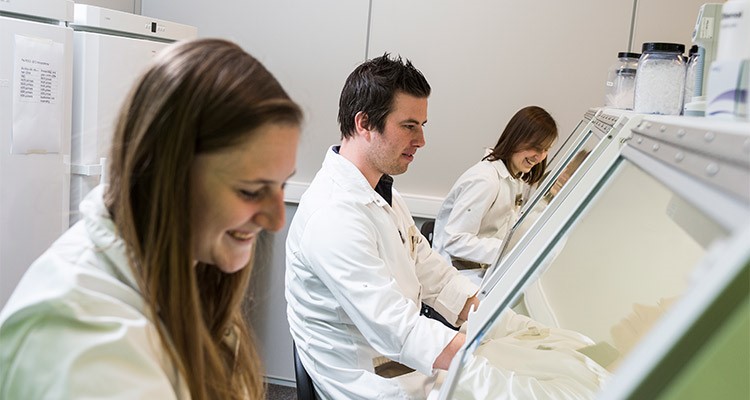The VAT regime will apply to properties for professional use from 2018. An end to complex tax arrangements by way of tax optimisation? All the details.

It is already the case with our neighbours, but Belgium used to be an exception. From now on, it will be possible to apply VAT to the rental of properties for industrial use. This decision was made by the Michel government when preparing its 2018 federal budget, the famous 2017 "summer agreement".
What will change?
Specifically, the measure will enable property developers to reduce their construction costs. From 2018, they will be able to recover the 21% VAT invoiced by contractors when constructing a property. Until now, as odd as it may seem, this was impossible.
Three aims in sight:
- On the one hand, to make Belgium more attractive from a tax perspective for companies wanting to set up their operational or management headquarters in our country;
- On the other hand, the measure will also entail a simplification of administrative and tax procedures: previously, construction and rental of properties to companies was subject to a series of... tax arrangements;
- Finally, the most eagerly awaited consequence: to lower lease rental costs.
"It allows for lower rental prices due to a significant reduction of charges on building construction and foundation costs. On the other hand, it will no longer be necessary to set up complex tax arrangements for tax optimisation purposes."
Johan Van Overtveldt, Minister of Finance, in charge of Combatting Tax Fraud.
For instance:
A EUR 500,000 building generates 105,000 in VAT. Currently, VAT at 21% is applied to the company's lease rental. In future, this will be recoverable.
Retroactive effect?
No, the system, which should be emphasised is optional, only applies to new contracts entered into as from 1 January 2018, where a landlord lets a property to a professional tenant. This is clearly a B2B perspective. Trade-off: the individual or the company will be bound to use it for professional or industrial activities eligible for VAT.
20.12.2024
Mobility in 2025: Arval’s view
Laurent Mélignon, Corporate Sales Director of Arval, the market leader in full-service car leasing and new mobility solutions, looks ahead to 2025. What does the future hold for the industry and mobility?
Arval is part of the Commercial, Personal Banking & Services division of the BNP Paribas Group. As the market leader, it plays a key role in offering full-service car leasing and new mobility solutions. Laurent Mélignon, Corporate Sales Director of Arval, is thus ideally placed to share his thoughts on what's in store for Arval in 2025.
Arval is the market leader in a sector in flux: how companies and private individuals see and approach mobility has changed significantly. Mélignon sees several reasons for this: "In our country, taxation is the primary driver of many change processes. This taxation is linked to wage costs: many companies see company cars as a tax-friendly alternative for maximising the remuneration they want to pay their staff. Employees, meanwhile, see company cars as a way to be compensated with tangible benefits, without the tax authorities targeting them. In the coming year, the tax framework will continue to evolve in line with this social evolution. The federal mobility budget and the bicycle allowance, for example, or options such as the cafeteria plan or the flex income plan: these are just some of the ways in which companies can use their salary package to motivate their workers."
But Arval's Corporate Sales Director sees even more drivers of change for mobility. Mélignon: "Our entire mobility culture is also changing, a trend that is set to continue in 2025. The younger generation is much less attached to the status that company cars have been associated with for so many years. They are just as happy to hop on a bicycle, take the bus or use car sharing, depending on the company's location, of course. Finally, there are also several macroeconomic factors driving this change. These include the growing traffic crisis many cities are facing, as well as the increasing awareness of people and economic players regarding the energy transition. We are all gradually seeing the need for change and alternative mobility choices. This has been clear for quite some time."
Flexible complexity
The mobility mix will only become stronger in the future. Mélignon: "That is a big part of our mission: to be and remain a one-stop shop, offering companies the opportunity to think in terms of flexible remuneration. A new employee, for example, someone who is single and without a family, has different mobility needs than their colleague, who is married with two children and has their own home in the countryside or in the city. Now that this need is becoming stronger and more established, Arval is the ideal partner to provide companies with knowledge about mobility and take the burden off their hands. We enable employers to offer flexibility by taking care of the complexity associated with it."
Positive mindset
Mélignon expects the transition to electric mobility to continue in 2025: "When I look at corporate customers, I see that 80% of all new orders are electric. This is quite different from the private market, where we barely reach 20%. The electrification of the Belgian fleet is therefore mainly driven by companies. I see that the government has recently made some announcements and initiatives to slightly adjust and refine the federal mobility budget. In the coming months, more and more people may thus give up their company cars and opt for this adjusted budget instead. Arval can also be of service there, with a positive mindset and a lot of know-how, in our role as a 'full mobility provider'."
Tipping point
According to Mélignon, the shift to electric mobility, which the market has been anticipating for so long, will also have consequences for companies. Mélignon: "We expect to see many more affordable models in 2025. Electric vehicles will no longer be just for the lucky few. This benefits the private market, but it also gives companies more opportunities. In addition, I expect the price of cars with combustion engines to rise. We often receive this feedback from manufacturers. As a result of the Corporate Average Fuel Economy (CAFE) standards, which regulate their CO2 emissions, they will soon have to pay huge fines if they fail to meet these standards. It is therefore in their interest to steer the market towards electric cars. They will also adjust their production capacity accordingly: 'made to order' instead of holding large stocks will become the industry standard from next year."
The road ahead
On a final note, Arval expects the market to open up to smaller and medium-sized enterprises and individual clients in the near future. Mélignon: "We believe that the change in the market will mean that many companies, which currently still favour purchasing company cars or financial leasing, will switch to operational leasing. They will outsource the risk related to, for example, residual value to us. And that is where we can make a difference as the market leader: we see this as a scenario for the near future, for which we are already preparing."
11.09.2024
Discover our leasing options and get our top deal
Thinking about leasing a company car? Not sure which options are available? Below is an overview of all our available leasing options. That way you can determine which type of leasing is right for you. What's more, our partner Arval has a top deal, valid until 30 November 2024: drive the new electric BMW iX1 eDrive20 or BMW i4 Gran Coupé for a very advantageous all-in price.

Financial or operational leasing?
The same reasoning applies to both financial and operational leasing: you pay a leasing company for a specific period, usually four or five years. In both cases, the leasing company is the legal owner of the car. You do, however, have the option to purchase the car at the end of the contract. In financial leasing, the amount of the purchase option is known from the start of the contract whereas with operational leasing, the amount is determined at the end of the contract based on the car's market value.
'Including services'
This is one of the major advantages of operational leasing versus financial leasing: the taxes, (comprehensive) insurance, maintenance and costs (except fuel) are all included in the rental price. What's more, you enjoy additional services such as summer and winter tyres, roadside assistance and a replacement vehicle. All you need to do is pay a specific amount each month and that's it. In short, you get to drive with peace of mind: everything has been paid for, except for the fuel.
Tax implications?
The purchase option has tax implications: for a financial lease, you depreciate the investment asset and deduct the interest on your tax return. The car is listed as an asset on your balance sheet. For an operational leasing contract, the full rental price is processed as a cost. Tax deduction limits apply in both cases and you may have to take the professional use of the car into account. Equally important: the VAT is paid monthly on the rental price and not in one go, allowing you to use your lines of credit for other investments.
Get our top deal
Our exceptional offer is valid until 30 November 2024: you can lease the new electric BMW iX1 eDrive20 or BMW i4 Gran Coupé under an operational leasing contract at an affordable and exclusive price, including all services.
Arval Belgium SA, Ikaroslaan 99, 1930 Zaventem – RPM Bruxelles – TVA BE 0436.781.102, intermédiaire en assurances à titre accessoire, inscrit auprès de la FSMA sous le numéro 047238 A. Sous réserve d’acceptation de votre demande.
Arval Belgium nv, Ikaroslaan 99, 1930 Zaventem – RPR Brussel – BTW BE 0436.781.102, nevenverzekeringstussenpersoon geregistreerd bij de FSMA onder het nummer 047238 A. Onder voorbehoud van aanvaarding van uw aanvraag.
10.06.2024
Electronic invoicing between companies to become mandatory
The bill to introduce this obligation in Belgium has been submitted to the Federal Parliament. If the draft bill is approved, B2B e-invoicing will become mandatory from 1 January 2026. Our experts explain why Belgium wants to introduce these new rules, what the implications are for your company and how we can better support you.
“The bill is consistent with international developments and initiatives at the European level,” says Nicolas De Vijlder, Head of Beyond Banking at BNP Paribas Fortis. "Europe's ambition is a harmonised digital standard. Structured e-invoicing between companies will also reduce the administrative burden of invoicing, enabling companies to work more efficiently and increase their competitiveness. The automation of VAT declarations will also help governments prevent tax fraud and adjust economic policies based on more qualitative data.”
Evolution rather than a revolution
“The new legislation is an evolution rather than a revolution,” adds Erik Breugelmans, Deputy Managing Director at BNP Paribas Factoring Northern Europe. "Digitalisation is becoming pervasive at all levels of society, as we have seen with the increase in electronic payments, as well as the additional obligations in recent years regarding electronic invoicing to the government. In this sense, the bill for mandatory electronic invoicing between companies is a logical next step. Our bank is happy to contribute to this process, although we do not intend to offer the same services as accounting software or fintechs. However, we are happy to help our customers with payments and financing."
The impact on businesses
“Customers need to be aware that the new regulations will have an impact on their internal and external processes,” continues Erik Breugelmans. "The majority of Belgian companies mainly serve an international market, which means that the introduction of electronic invoicing will be more complex for them than for companies operating in the domestic market. As the legislation will be introduced in one go, they need to start preparing now."
“The new rules will affect a company’s accounting department as well as its IT department,” emphasises Nicolas De Vijlder. "The procedural requirements are key, otherwise the automated process will not work. However, one of the main benefits of advanced automation is that everything can be done faster and more efficiently. The time between sending an invoice and paying it will be shorter and cash flows more predictable. In addition, it will also reduce the risk of error and fraud, as all transactions will pass through a secure channel."
Ready to offer you even more and better support
“Thanks to the far-reaching digitisation resulting from the new regulations, we will be able to further optimise payments,” concludes Erik Breugelmans. "As a bank, we need to finance our customers’ receivables as quickly and efficiently as possible, so that they have easier access to their working capital. In addition, because we have already gone through an entire process in terms of large-scale automation, we will be able to adapt quickly to the new rules. We can also draw on the expertise of the BNP Paribas Group, which is currently developing an e-invoicing solution for large companies."
Want to know more?
Listen to the episode on B2B e-invoicing :
30.04.2020
#StrongerTogether Biogazelle plays part in fight against coronavirus
Biogazelle is playing a huge role in the shared battle against the coronavirus. In record time, the Ghent biotech company has developed a test for detecting infections.

Since 2007, Biogazelle has offered support to the pharmaceutical and medical industries. The company develops revolutionary techniques for tasks such as detecting new illnesses, multiplying tiny amounts of genetic material to create analysable samples.
“In just 10 days, we have come up with an extremely sensitive coronavirus detection test,” says CEO Mieke Van Acker. “Our speed and flexibility have amazed the big pharma companies. We started with 2,000 tests a day, and that number has already shot up. But we are still a long way from our limit.”
Unprecedented collaboration
To drive capacity even further, Biogazelle has invested in a robot. “Very soon this will automate certain manual operations,” the CEO explains. “Inactivation of the virus is currently done manually. By automating this step in the process, we will significantly increase efficiency.”
Biogazelle is part of a coronavirus consortium established by minister Philippe De Backer that also includes three large pharma companies and a university. “We are joining forces to further increase the testing capacity in our country,” says Mieke Van Acker. “Such a collaboration is unprecedented.”
Every link is crucial
According to Van Acker, every link in the chain is equally important. “We ourselves are supported by Ghent University, UZ Gent and the Flemish Institute for Biotechnology. We have help from volunteers, and industry colleagues have also offered test apparatus.
But the financial support from BNP Paribas Fortis is as valuable as the scientific aspect.” This financial support consists of a credit line and leasing agreement. Biogazelle will also make use of BNP Paribas Fortis Factor, a series of solutions aimed at optimising work capital and the resulting financial needs.
